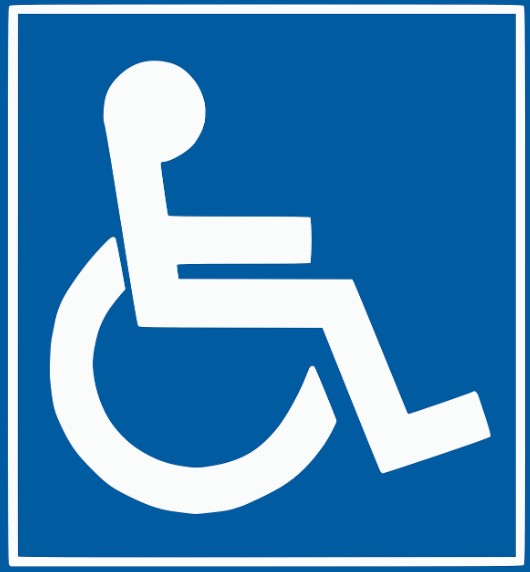A Complete Guide to Financial Help, Support Systems, and Real-Life Experiences
Living with arthritis in the UK isn’t just about managing pain — it’s also about navigating daily challenges that affect your ability to work, move freely, and live independently. Yet many people are unaware of the financial support they may be entitled to.
Whether you’re newly diagnosed or have been silently coping for years, this blog post will walk you through the benefits available to people with arthritis in the UK, how to apply, and share real stories from those who’ve successfully claimed them.
Why Is It Important to Claim Benefits for Arthritis?
Arthritis isn’t always visible — but its impact is very real. Joint pain, fatigue, stiffness, and limited mobility can turn everyday activities like cooking or walking to the shop into exhausting tasks.
These symptoms can lead to:
- Reduced work hours or job loss
- Reliance on family members or carers
- Additional costs like taxis, mobility aids, or home adaptations
That’s where the UK’s welfare system can provide real relief. Benefits are designed to support your quality of life, ease financial pressure, and promote your independence.
Benefits to Claim When U Have Arthritis UK
1. What Is Personal Independence Payment (PIP), and Are You Eligible?

Personal Independence Payment (PIP) is the most widely claimed disability benefit for people under State Pension age who struggle with long-term health conditions, including arthritis.
PIP is made up of two parts:
- Daily Living Component – if you need help preparing food, bathing, dressing, or managing medication
- Mobility Component – if your arthritis limits your ability to move around or travel
Depending on how arthritis affects you, you could qualify for one or both components at either a standard or enhanced rate.
2025 Weekly Rates:
- Daily Living: £72.65 (standard) / £101.75 (enhanced)
- Mobility: £28.70 (standard) / £82.55 (enhanced)
You could receive up to £184.30 per week, which is tax-free and not affected by your income or savings.
How to Apply:
- Call the PIP claim line: 0800 917 2222
- Complete a form about how your condition affects daily life
- Attend a medical assessment (usually with a healthcare professional)
- Await a decision, which can take up to 12 weeks
Real experience:
Sonia from Nottingham says:
“At first, I was hesitant. I didn’t think arthritis ‘qualified.’ But after struggling with basic tasks, I applied. I now use my PIP to pay for a cleaning service and helpful kitchen gadgets, and it’s taken a lot of stress off.”
2. Can You Get Attendance Allowance If You’re Over State Pension Age?
For those over State Pension age, Attendance Allowance replaces PIP. It helps with care and supervision needs due to physical or mental health conditions, including arthritis.
You don’t need to have a formal carer — what matters is that you need care, even if you manage alone.
2025 Weekly Rates:
- Lower rate: £72.65 (daytime or night-time help)
- Higher rate: £108.55 (day and night help or supervision)
Common arthritis-related reasons for receiving Attendance Allowance include:
- Needing help getting out of bed
- Difficulty washing or using the toilet
- Supervision to prevent falls
How to Apply:
- Download a form from the GOV.UK or call 0800 731 0122
Real experience:
Alan, 76, from Cardiff:
“I didn’t think I was eligible because I don’t have a carer. But the truth is, I struggle with stairs, getting dressed, and making food. This benefit helped me pay for grab rails and a bit of help each week.”
3. Can You Claim Employment and Support Allowance (ESA) If You Can’t Work?

If your arthritis is so severe that you cannot work or must take frequent time off, you may be able to claim Employment and Support Allowance (ESA).
There are two main types:
- New Style ESA – if you’ve paid enough National Insurance
- Income-related ESA – available in certain cases or through Universal Credit
After a Work Capability Assessment, you’ll be placed in one of two categories:
- Work-Related Activity Group (WRAG) – expected to prepare for future work
- Support Group – no work expectations, higher payments
2025 Rates:
- ESA ranges from £84.80 to £130+ per week, depending on your group and age
How to Apply:
- Apply online via GOV.UK or speak to your Jobcentre Plus
Real experience:
Debbie, 35, London:
“My arthritis makes standing impossible some days. ESA has helped me manage financially without being pushed to return to a job I can’t physically do anymore.”
4. Can You Claim Universal Credit for Arthritis?
Universal Credit (UC) is a benefit for people on low incomes or out of work. If arthritis significantly impacts your ability to work, you can be assessed for Limited Capability for Work (LCW) or Limited Capability for Work and Work-Related Activity (LCWRA).
If you’re placed in the LCWRA group, you’re:
- Not required to job hunt
- Paid an extra £390.06/month on top of your usual Universal Credit
You can also claim help with:
- Rent payments
- Childcare costs
- Carer’s elements, if you’re supporting someone else
How to Strengthen Your Claim:
- Include medical letters, medication lists, X-rays, or specialist reports
- Track flare-ups or “bad days” in a symptom diary
- Ask your GP to write a support letter detailing your limitations
5. Can You Get a Blue Badge for Arthritis?

Yes — people with arthritis are often eligible for a Blue Badge, which gives access to disabled parking bays and helps you park closer to your destination.
You may qualify if:
- You experience severe pain when walking
- You walk slowly or with frequent rest stops
- You use mobility aids such as a cane or rollator
A Blue Badge helps you:
- Reduce walking distance to shops or GP surgeries
- Avoid parking fines due to needing extra time
- Maintain independence despite reduced mobility
How to Apply:
- Apply via your local council or the GOV.UK Blue Badge portal
- Provide medical proof and describe your walking difficulties clearly
6. Can You Get Help to Adapt Your Home With a Disabled Facilities Grant (DFG)?
If arthritis has made your home harder to live in — stairs, showers, or even door handles becoming obstacles — the Disabled Facilities Grant (DFG) can help.
What It Covers:
- Installing stairlifts
- Adapting bathrooms with walk-in showers
- Adding handrails, ramps, or non-slip flooring
- Widening doors for mobility aids
Grant Limits:
- England: Up to £30,000
- Wales: Up to £36,000
- Northern Ireland: Up to £25,000
Start the process by contacting your local council. You may need an assessment from an occupational therapist, who’ll recommend changes suited to your needs.
Why it matters:
Even small home changes can mean avoiding falls, regaining independence, and staying in your home longer.
7. What If You’re a Carer for Someone With Arthritis?
If you care for someone at least 35 hours per week, and they receive PIP, Attendance Allowance, or Disability Living Allowance, you might qualify for Carer’s Allowance.
2025 Weekly Rate:
- £81.90 per week
Eligibility:
- Must be over 16
- Must earn less than £151/week (after tax and expenses)
- Must not be in full-time education
Carer’s Allowance can impact the benefits of the person you care for, so it’s wise to seek advice before applying.
What If You’ve Been Refused a Benefit?
Don’t give up. Many claims are rejected the first time, but you have options:
- Request a Mandatory Reconsideration (within one month)
- Appeal to a Tribunal — many succeed here
- Get support from Citizens Advice or Versus Arthritis when writing appeals
Over 70% of PIP tribunal appeals are successful, especially when the applicant has professional help.
Final Thoughts: Don’t Let Arthritis Hold You Back From Claiming What You Deserve
If arthritis is affecting your life — physically, emotionally, or financially — know that you don’t have to cope alone. The UK has systems in place to support your independence and dignity, whether you’re still working, newly diagnosed, or retired.
Benefits won’t cure arthritis, but they can absolutely help you live more comfortably, confidently, and independently.
Don’t wait for a crisis. Explore your entitlement today.

Leave a Reply